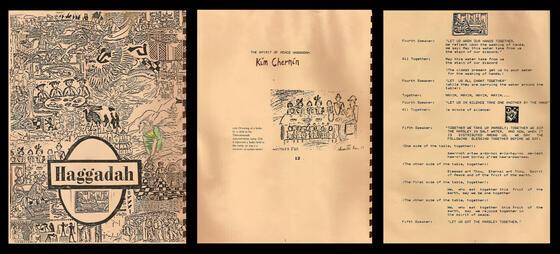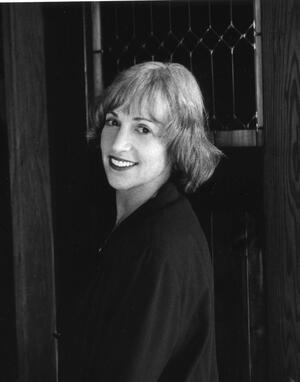Kim Chernin
Sometime during the mid-70s, a friend and I had the idea of changing the way we celebrated Passover. We didn't know anyone else who was doing this at the time. Therefore, the idea of re-writing the Haggadah seemed startling and even blasphemous. Now, 30 years later, this re-writing has itself become part of an emerging Passover tradition.
In retrospect, it is clear that our wish to change and adapt Passover was part of a much larger movement of feminist assertion and Jewish renewal.
What we wanted, above all, was to create a Passover celebration that was participatory and democratic. At our Passover no one person would be presiding. Each member of the group would play a role in guiding us through the ceremony. We also wanted to tell the traditional story in a new way. I wrote out a version of the story and included it in our Haggadah, but in the end we decided to let everyone tell the story spontaneously. We were calling on one another to reflect on the meaning of Passover at that particular moment in our history. We would ask, not only: Why is this night different from all other nights? But also: Why are you here tonight? Why does Passover matter to you?
I don't know if the pages reproduced here represent the first Haggadah I wrote. Since the seventies, I have been involved in the creation of several different Haggadot, intended for different groups of people. Reading it over, I see that this Haggadah dedicates itself to bringing about a spirit of peace within a group that has been troubled by some kind of discord. Over the years, the particular group and its particular discord have been forgotten. The invocation of the spirit of peace, on the other hand, seems more than ever appropriate to the celebration of Passover.
Here I am, almost 65 years old, with 150 words to describe my life! That’s less than three words per year. Clearly, there is a need for consolidation. But consolidation according to what principle? What really matters about my life? What counts professionally, personally, intimately, collectively? What do I want to set down in this brief space? After a moment’s thought, I know: I come from a Russian-Jewish, Marxist family that had set aside its practice of Judaism. I didn’t even realize until long after he was dead that my father, who was born to an Orthodox family, had been a bar mitzvah and as an adult still read Hebrew. I have had to discover Judaism on my own, educate myself, and learn what it means to be a Jewish woman who worships Shekhinah (the feminine presence of God). I am proud of this accomplishment. I am a Jewish writer. What more is there to say?




